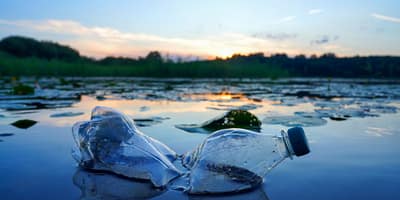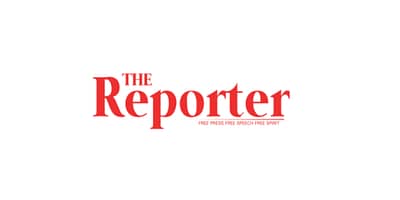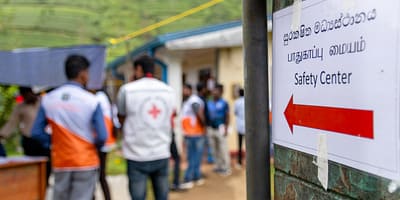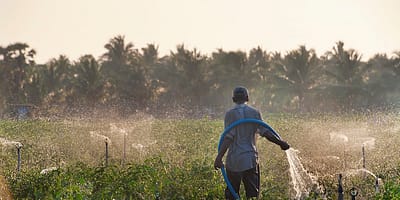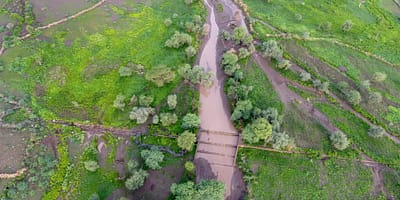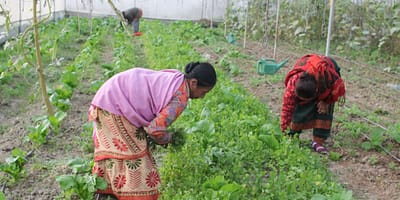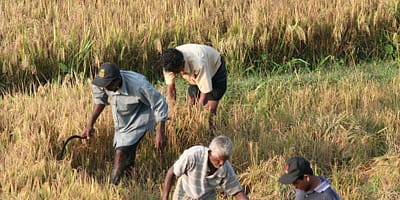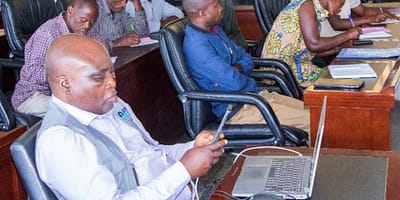All Categories News (450) Explainers (4) Features (165) In the media (223) Press releases (79) Publications (46) Specials (0) Annual reports (6) Blogs (280) From the DG (6) Multimedia (0) Infographics (3) Photos (6) Podcasts (10) Videos (43)
All Locations Africa (432) Algeria (1) Angola (1) Benin (2) Botswana (6) Burkina Faso (8) Chad (1) Côte d’Ivoire (3) Democratic Republic of the Congo (1) Egypt (34) Ethiopia (77) Gambia (1) Ghana (80) Kenya (22) Lesotho (1) Libya (1) Malawi (7) Mali (5) Morocco (18) Mozambique (7) Namibia (3) Niger (1) Nigeria (22) Rwanda (3) Senegal (3) South Africa (32) Sudan (1) Togo (1) Tunisia (10) Uganda (6) United Republic of Tanzania (5) Zambia (33) Zimbabwe (17) Americas (19) Brazil (2) Colombia (5) Ecuador (1) Mexico (2) Nicaragua (1) Paraguay (1) Peru (2) United States of America (3) Asia (585) Afghanistan (8) Azerbaijan (2) Bangladesh (36) Bhutan (3) Cambodia (5) China (16) India (131) Indonesia (1) Iran (2) Iraq (1) Japan (2) Jordan (30) Kazakhstan (2) Kyrgyzstan (4) Lao PDR (16) Lebanon (11) Myanmar (14) Nepal (93) Pakistan (84) Philippines (1) Saudi Arabia (8) Sri Lanka (143) Syrian Arab Republic (1) Tajikistan (10) Thailand (1) Turkmenistan (1) United Arab Emirates (16) Uzbekistan (16) Viet Nam (4) Yemen (3) Europe (5) Italy (1) Netherlands (1) Spain (2) Sweden (1) Ukraine (1) Global (122) Oceania (4) Australia (3) Fiji (1)
All Research Non-research (8) Water data science (153) Water data science for action (61) Water futures data and analytics (37) Water, climate change and resilience (383) Climate mitigation and adaptation pathways (243) Climate policies, finance and processes (34) Fragility, conflict, livelihoods and water (3) Water, food and ecosystems (354) Agricultural water management transformations (37) Integrated basin and acquifer management (25) Next generation irrigation systems (122) Sustainable water infrastructure and ecosystems (89) Water, food, energy nexus (82) Water, growth and inclusion (332) Economics and impact assessment (28) Gender equality and social inclusion (163) Integrated circular economy transformations (50) Water governance and political economy (41)
All Funders & Partners Africa Group of Negotiators Expert Support (1) African Development Bank (AfDB) (2) Alliance for a Green Revolution in Africa (AGRA) (1) Alliance for Global Water Adaptation (AGWA) (6) Aquaporo (2) Arab Water Council (1) Arup (3) Asian Development Bank (ADB) (4) Association of International Research and Development Centers for Agriculture (AIRCA) (6) Centre for Agriculture and Bioscience International (CABI) (1) International Centre for Integrated Mountain Development (ICIMOD) (5) Australia's Department of Foreign Affairs and Trade (DFAT) (6) Water for Women Fund (3) Australian Centre for International Agricultural Research (ACIAR) (8) Australian Water Partnership (AWP) (3) BAIF Development Research Foundation (1) Bangladesh's Ministry of Agriculture (1) Bangladesh Agricultural Research Council (BARC) (1) Bill & Melinda Gates Foundation (9) CARE (1) Center for Environment and Development for the Arab Region and Europe (CEDARE) (1) Centre for Poverty Analysis (CEPA) (1) Cewas (1) CGIAR (326) Alliance of Bioversity International and CIAT (9) International Center for Agricultural Research in the Dry Areas (ICARDA) (4) International Crops Research Institute for the Semi-Arid Tropics (ICRISAT) (1) International Food Policy Research Institute (IFPRI) (16) International Livestock Research Institute (ILRI) (2) International Maize and Wheat Improvement Center (CIMMYT) (8) International Potato Center (CIP) (1) International Rice Research Institute (IRRI) (14) WorldFish (7) Chrysalis (1) Climate Centre (2) Columbia University (1) Cornell University (1) Council on Energy, Environment and Water (CEEW) (1) Deltares (3) Deutsche Gesellschaft fuer Internationale Zusammenarbeit (GIZ) GmbH (6) Digital Earth Africa (5) European Union (EU) (17) European Commission (10) Everest Club (1) Expertise France (1) Farm Africa (1) Field Ornithology Group of Sri Lanka (FoGSL) (1) Germany's Federal Ministry for Economic Cooperation and Development (BMZ) (8) Ghana's Ministry of Food and Agriculture (MoFA) (2) Ghana Irrigation Development Authority (GIDA) (1) Global Affairs Canada (1) Global Environment Facility (GEF) (3) Global Resilience Partnership (GRP) (1) Global Water Partnership (GWP) (18) Google.org (8) Hawassa University (3) Helmsley Charitable Trust (12) iDE (1) IHE Delft Institute for Water Education (6) India's Ministry of Agriculture and Farmers Welfare (8) Indian Council of Agricultural Research (ICAR) (7) Borlaug Institute for South Asia (BISA) (1) Central Arid Zone Research Institute (CAZRI) (1) Central Research Institute for Dryland Agriculture (CRIDA) (1) India's Ministry of Jal Shakti (1) Indian Space Research Organisation (ISRO) (1) Institute of Development Studies (IDS) (1) Inter-American Development Bank (IDB) (1) International Dryland Development Commission (IDDC) (1) International Federation of Red Cross and Red Crescent Societies (IFRC) (2) International Fund for Agricultural Development (IFAD) (8) International Union for Conservation of Nature (IUCN) (5) International Water Association (IWA) (3) International Water Resources Association (IWRA) (1) Interstate Commission for Water Coordination of Central Asia (ICWC) (1) Scientific-Information Center (SIC) (1) Japan's Ministry of Agriculture, Forestry and Fisheries (MAFF) (5) Jordan's Ministry of Agriculture (1) Kenya Agricultural & Livestock Research Organization (KALRO) (1) Kwame Nkrumah University of Science and Technology (1) League of Arab States (1) Arab Organization for Agricultural Development (AOAD) (1) Limpopo Watercourse Commission (LIMCOM) (2) McGill University (1) Mercy Corps (2) Ministry of Economic Affairs and Climate Policy of the Netherlands (1) Netherlands Enterprise Agency (RVO) (1) National Agriculture Research Center (1) NDC Partnership (1) Nepal Water Conservation Foundation (NWCF) (1) Nepal's Ministry of Energy, Water Resources and Irrigation (2) Nepal's Department of Hydrology and Meteorology (DHM) (1) Netherlands Food Partnership (NFP) (1) Netherlands Water Partnership (NWP) (1) Norwegian Agency for Development Cooperation (NORAD) (4) Organisation for Economic Co-operation and Development (OECD) (1) Pakistan Council of Research in Water Resources (PCRWR) (2) Pakistan Ministry of Climate Change and Environmental Coordination (MOCC) (1) Resurgence (2) SNV Netherlands Development Organisation (2) South Asian Association for Regional Cooperation (SAARC) (1) South China Agricultural University (SCAU) (1) Sri Lanka's Ministry of Agriculture (5) Sri Lanka's Department of Agrarian Development (3) Sri Lanka's Ministry of Defence (4) Sri Lanka's Disaster Management Division (4) Sri Lanka's Disaster Management Centre (3) Sri Lanka's Ministry of Environment (2) Sri Lanka's Ministry of Irrigation (2) Sri Lanka's Ministry of Mahaweli Development and Environment (1) Sri Lanka's Ministry of Technology (4) Arthur C. Clarke Institute for Modern Technologies (ACCIMT) (1) National Research Council of Sri Lanka (NRC) (2) Stockholm Environment Institute (SEI) (3) Stockholm International Water Institute (SIWI) (3) Swedish International Development Agency (SIDA) (2) Swedish University of Agricultural Sciences (SLU) (1) Swiss Agency for Development and Cooperation (SDC) (8) Tata Trusts (22) Total LandCare (1) Tribhuvan University (1) UK Research and Innovation (UKRI) (1) UK's Foreign, Commonwealth & Development Office (FCDO) (32) United Nations (UN) (74) Food and Agriculture Organization of the United Nations (FAO) (21) Intergovernmental Panel on Climate Change (IPCC) (1) Intergovernmental Science-Policy Platform on Biodiversity and Ecosystem Services (IPBES) (1) International Organization for Migration (IOM) (2) International Telecommunication Union (ITU) (1) Risk-informed Early Action Partnership (REAP) (1) UN Environment Programme (UNEP) (6) UN-Water (3) United Nations Children’s Fund (UNICEF) (7) United Nations Convention to Combat Desertification (UNCCD) (1) International Drought Resilience Alliance (IDRA) (2) United Nations Development Programme (UNDP) (3) United Nations Economic and Social Commission for Asia and the Pacific (1) United Nations Economic and Social Commission for Western Asia (ESCWA) (1) United Nations Educational, Scientific and Cultural Organization (UNESCO) (1) United Nations Framework Convention on Climate Change (UNFCCC) (6) United Nations Office for Disaster Risk Reduction (UNDRR) (1) Coalition for Disaster Resilient Infrastructure (1) United Nations Office for Outer Space Affairs (UNOOSA) (1) United Nations Office for the Coordination of Humanitarian Affairs (UN OCHA) (2) United Nations Population Fund (UNFPA) (1) World Food Programme (WFP) (10) World Meteorological Organization (WMO) (1) COPE Disaster Champions (1) United States Agency for International Development (USAID) (64) Feed the Future (2) United States Department of State (1) University of Aberdeen (3) University of London (1) School of Oriental and African Studies (SOAS) (1) University of Manchester (1) University of Nebraska (11) Daugherty Water for Food Global Institute (12) Water Research Commission (WRC) of South Africa (1) Wellcome Trust (2) World Bank (83) International Development Association (IDA) (1) World Economic Forum (2) World Farmers' Organization (WFO) (1) World Vision (5) Department of Water Resources (DWR) (1) National Oceanic and Atmospheric Administration (NOAA) (1) UK Met Office (1)
Sort by date Newest first Oldest first
April 9, 2025
In Nigeria, IWMI works to address gender inequalities through water sector policies to ensure inclusive development and support sustainable water governance.
April 8, 2025
The event brings together leading voices in food, land and water systems research.
April 7, 2025
The agreement will enhance research cooperation, water security and sustainable water resources management in the country and the region.
April 7, 2025
IWMI and partners are documenting the economic, social, and environmental impacts of nature-based-solutions across its four pilots in Egypt, Jordan, Lebanon, and the Occupied Palestinian Territories (OPT) — making the
April 3, 2025
The groundbreaking use of artificial intelligence in the Water Resilience Tracker is strengthening water and climate governance.
March 30, 2025
A program for schools and youth empowers the next generation to be waste segregation champions and participate in innovative waste management solutions.
March 26, 2025
Microplastics have infiltrated what people breathe, eat and drink. What does this mean for water?
March 25, 2025
The community of Wadi Al-Seer showcased resilient water solutions including canal restoration, spring rehabilitation, agroecology and climate-smart agriculture.
March 25, 2025
The Himalayan glaciers are melting and we need to slow this crisis to protect future generations.
March 24, 2025
On World Water Day 2025, IWMI presents The Legend of the River God of Mankran, a powerful tale from Ghana that blends folklore with urgent environmental lessons.
March 23, 2025
As water degrade, the ripple effects are felt across borders, exacerbating droughts, water scarcity and food insecurity. What can we do about this?
March 22, 2025
Africa's high-altitude ecosystems that provide essential water resources for millions are at risk and we need collective action.
March 22, 2025
Jordan looks at systems thinking for water conservation and the irrigation paradox.
March 21, 2025
Africa’s glaciers hold the future of water for millions and we must act this World Water Day before they vanish.
March 21, 2025
World Water Day emphasizes the need for an integrated approach in MENA to address the region’s worsening water crisis
March 21, 2025
Join top experts in this webinar series to gain insights and navigate the evolving landscape of disaster preparedness.
March 15, 2025
A new CGIAR-led national survey of Sri Lankan households links water to their well-being.
March 14, 2025
The Water Resilience Tracker will assist governments in Brazil, Egypt, Malawi and Nepal to strengthen national water governance and build climate resilience.
March 11, 2025
International research and innovation institute will facilitate next stage of the Global Commission, as it shares its recommendations for action.
March 10, 2025
A women-led agricultural initiative in Lalitpur, Nepal uses solar irrigation technology to boost the resiliency of their community.
March 8, 2025
Supporting women farmers and micro-entrepreneurs in Northwestern Ghana diversifies income sources and enhances their economic resilience.
March 4, 2025
UK's Minister for Indo-Pacific launches citizen science element of Jaffna groundwater project.
March 3, 2025
How the GeoGoviya platform is revolutionizing climate-smart agriculture.
February 25, 2025
Community engagement and education drives meaningful change in environmental stewardship for healthier ecosystems and more resilient communities in Rwanda.








